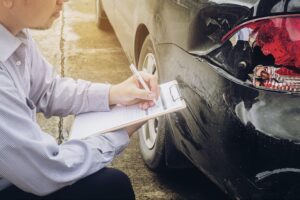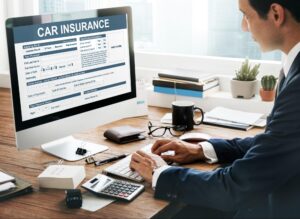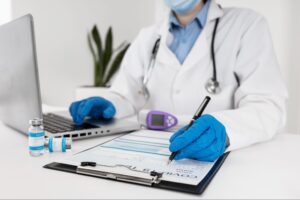
Experiencing a car accident can be incredibly stressful, leaving you feeling overwhelmed and unsure of what to do next. According to a recent survey, motor vehicle death rates in the U.S. peaked in 1937, with 30.8 fatalities per 100,000 people. While ensuring immediate safety is crucial, it’s equally important to understand the steps to take afterward.
These actions can significantly impact your health and legal standing. In this article, we’ll explore why these steps matter and provide a practical guide to help you effectively manage the follow-up tasks after a car accident.
Understanding the Importance of Post-Accident Tasks
Post-accident tasks serve as critical steps toward recovery and resolution. They encompass everything from ensuring personal safety to handling legal matters. Neglecting these tasks can have negative consequences, including potential physical health issues and legal complications.
The Role of Adrenaline in Post-Accident Reactions
In the aftermath of a car accident, the body releases adrenaline, which can mask pain and emotional responses. This natural reaction may give individuals a false sense of security, leading them to overlook symptoms of injuries or necessary post-accident procedures.
Moreover, adrenaline can cloud judgment, making it hard to think clearly. Therefore, despite the rush of feelings following an accident, it is crucial to take a moment to regroup and assess the situation.
Taking a few deep breaths and focusing on the immediate environment can help individuals regain a sense of control. Having a trusted friend or family member present is also advisable, as they can provide support and assist in making rational decisions during this overwhelming time.
Legal Implications of Neglecting Follow-Up Tasks
Failing to complete necessary follow-up tasks can carry legal repercussions. For example, if an individual does not report the accident promptly to their insurance company, they may face difficulties in filing a claim later. Additionally, lack of documentation or missed medical evaluations can severely undermine any legal actions taken afterward.
Understanding the legal framework surrounding car accidents can alleviate anxiety and provide clarity in decision-making. Ignoring follow-up tasks can unintentionally weaken your position in potential legal disputes.
It is essential to document every detail of the incident, including photographs of the scene, witness statements, and any correspondence with insurance companies.
This comprehensive record can serve as invaluable evidence should legal proceedings become necessary. Furthermore, consulting with a legal expert specializing in personal injury can help navigate the complexities of the legal system and ensure that all necessary steps are taken promptly and correctly.
Immediate Actions to Take at the Accident Scene
The moments following a car accident are crucial for ensuring safety and gathering necessary information. Here are the immediate actions to prioritize:
Ensuring Personal Safety and Health
Before anything else, check yourself and others for injuries. If anyone is hurt, call emergency services immediately. Ensure your vehicle is in an area away from oncoming traffic to prevent further accidents.
It is advisable to remain calm and avoid moving anyone who appears seriously injured, as this could exacerbate their condition. Wait for professional medical help to arrive and provide guidance. In addition to assessing physical injuries, it’s also important to be aware of emotional reactions. Accidents can be traumatic, and individuals may experience shock or panic.
Offering reassurance to those involved can help stabilize the situation until help arrives. If you can, take deep breaths and focus on the task at hand to maintain clarity during this stressful time.
Gathering Necessary Information
After ensuring safety, it’s essential to collect relevant information from the accident scene, including:
- Names and contact details of all parties involved
- Insurance information
- License plate numbers
- Witness contacts
- Photos of the accident scene
Documenting these details promptly can be vital for insurance and legal matters later. Make use of a notepad or a smartphone to record everything accurately. Additionally, take note of the time and weather conditions at the moment of the accident, as these factors can influence the circumstances surrounding the incident.
If possible, sketch a quick diagram of the accident scene, marking the positions of the vehicles and any relevant road signs or signals. This visual representation can be invaluable when recounting the events to your insurance company or legal representatives.
Navigating the Insurance Claim Process

Once the immediate aftermath is handled, the next step is to navigate the insurance claim process. This is an essential element in receiving compensation for damages and injuries.
Reporting the Accident to Your Insurance Company
Contact your insurance company as soon as possible to report the accident. Most policies require that accidents be reported within a specific timeframe. During this call, provide all pertinent information gathered at the scene.
Your insurance representative will guide you through the next steps, including what documentation may be required for your claim. This might include photos, police reports, and medical records.
It’s also advisable to take notes during this conversation, as you may need to reference specific details later on. Keeping a record of your claim number and the names of the representatives you speak with can be invaluable if any disputes arise.
Understanding Your Insurance Coverage
Familiarize yourself with your coverage details, which can affect how you proceed with the claim. Understanding the following types of coverage can help:
- Liability Coverage: This covers damages you cause to others.
- Collision Coverage: This pays for damage to your vehicle, regardless of fault.
- Comprehensive Coverage: This covers non-collision-related damage.
- Personal Injury Protection (PIP): This covers medical expenses for injuries sustained.
Knowing your coverage can significantly influence your next steps and expectations regarding compensation. Additionally, reviewing any deductibles that may apply to your claim is wise, as these can affect the total amount you receive.
If your coverage includes rental reimbursement, you may also want to inquire about the process for securing a rental vehicle while your car is being repaired. Understanding these nuances can help you avoid unexpected costs during an already stressful time.
Moreover, it’s important to remember that insurance policies can vary widely. Some may offer additional benefits, such as roadside assistance or coverage for lost wages due to your inability to work following an accident. Awareness of these perks can provide added peace of mind and financial support as you navigate recovery.
If you find the terms of your policy confusing, don’t hesitate to ask your insurance agent for clarification; they are there to help you understand your rights and responsibilities in the claims process.
Seeking Medical Attention After a Car Accident
Following an accident, it is critical to seek medical attention, as some injuries may not be immediately apparent. Prompt medical evaluation can lead to better outcomes.
Identifying Hidden Injuries
Injuries like concussions or internal bleeding may not manifest symptoms until hours or days later. It’s important to undergo a thorough medical examination even if you feel fine.
Signs of hidden injuries can include unexplained pain, headaches, or dizziness. Ignoring these signs may lead to serious complications down the line. For instance, a concussion can result in long-term cognitive issues if left untreated, while internal bleeding can escalate to life-threatening situations without immediate intervention.
Therefore, being vigilant about any changes in your health after an accident is paramount.
The Importance of Medical Documentation

Keep detailed medical records of any treatments received following the accident. This documentation is essential for insurance claims and potential legal actions. Include:
- Doctor’s notes
- Diagnostic test results
- Treatment plans
- Receipts for medical expenses
Establishing a clear record of your medical condition post-accident will help strengthen your case in any legal proceedings or insurance claims. Additionally, consider documenting your recovery process through personal notes or a journal.
This can provide insight into how your injuries affect your daily life and can be invaluable in illustrating the impact of the accident on your overall well-being.
Furthermore, having a comprehensive account of your experiences can aid healthcare providers in tailoring your treatment plan effectively, ensuring that you receive the best possible care during your recovery journey.
Legal Considerations Following a Car Accident
Understanding your legal rights and responsibilities after a car accident is crucial. There are many factors to consider in this domain.
When to Consult a Lawyer
If your case involves significant legal complexities, it may be wise to consult a lawyer specializing in car accidents. This is particularly true if:
- There are disputes regarding the fault
- You have suffered serious injuries
- The opposing party has legal representation
A legal expert can provide guidance tailored to your specific situation and help ensure that your rights are protected throughout the process. Additionally, they can assist in gathering evidence, such as police reports and witness statements, which can be crucial in establishing liability.
A lawyer can also help you navigate the often confusing landscape of insurance claims, ensuring that you receive the compensation you deserve for medical expenses, lost wages, and pain and suffering.
Understanding Your Rights and Responsibilities
As a driver, you have certain rights, such as the right to compensation for damages and the obligation to report accidents. Familiarizing yourself with these rights can empower you to make informed decisions.
It’s also important to understand that your responsibilities extend beyond just reporting the incident; you must exchange information with the other party involved, including insurance details and contact information. Failing to do so can lead to complications in your claim process.
Always know that cooperation with insurance companies and adherence to state laws are critical components of fulfilling your responsibilities as a driver after an accident. This proactive approach can help reduce stress during an already turbulent time.
Moreover, documenting the scene of the accident, taking photographs, and keeping detailed records of any communications can be invaluable should disputes arise later.
Being organized and thorough can significantly bolster your case and provide clarity in the aftermath of an accident, allowing you to focus on recovery rather than legal entanglements.
Conclusion
In summary, handling the aftermath of a car accident involves various tasks that, when properly executed, can alleviate legal and medical complications. From ensuring personal safety and gathering crucial information to navigating the insurance claims process and understanding legal implications, each step plays a vital role in recovery and resolution.
By prioritizing these follow-up tasks, individuals can take control of their situation and move toward healing and closure.
If you’re feeling overwhelmed or unsure about the next steps, you don’t have to face it alone. Reach out to experts who can guide you every step of the way. Visit Howe Law to connect with a dedicated team ready 24/7 to help you protect your rights and secure the best possible outcome.
Let us turn this stressful experience into a manageable journey toward resolution.
Related Articles


























































